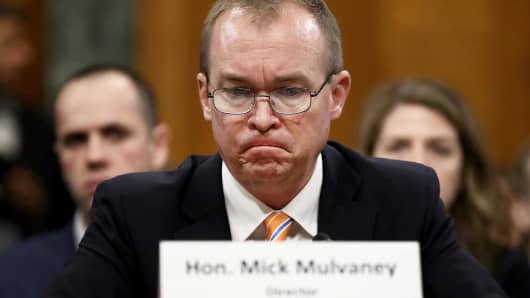The Trump administration believes there are two types of people in the country: givers and takers. Givers are taxpayers and takers are people who receive benefits from the government paid for by taxpayers. President Trump's budget director, Mick Mulvaney invoked this description while introducing the administration's budget proposal, which cuts $800 billion from Medicaid over the next decade.
This description will sound hollow to millions of middle-class families whose elderly and disabled relatives depend on Medicaid to provide long-term care services and medical care. These middle-class families might have strong memories of their now aging relatives who defended the U.S. in wars, taught in our schools, built our highways, and worked hard in our factories to make America what it is today. Other middle-class families might have family members who became disabled in their working-age years because of a stroke or back injury or amputation due to their job.
Seniors and the disabled account for about two-thirds of Medicaid expenditures. Most require assistance with the activities of daily living. Medicaid pays for long-term care of more than a million residents of nursing homes and institutions. Millions of others in need are able to remain in their homes and communities because Medicaid pays for their long-term care services.


